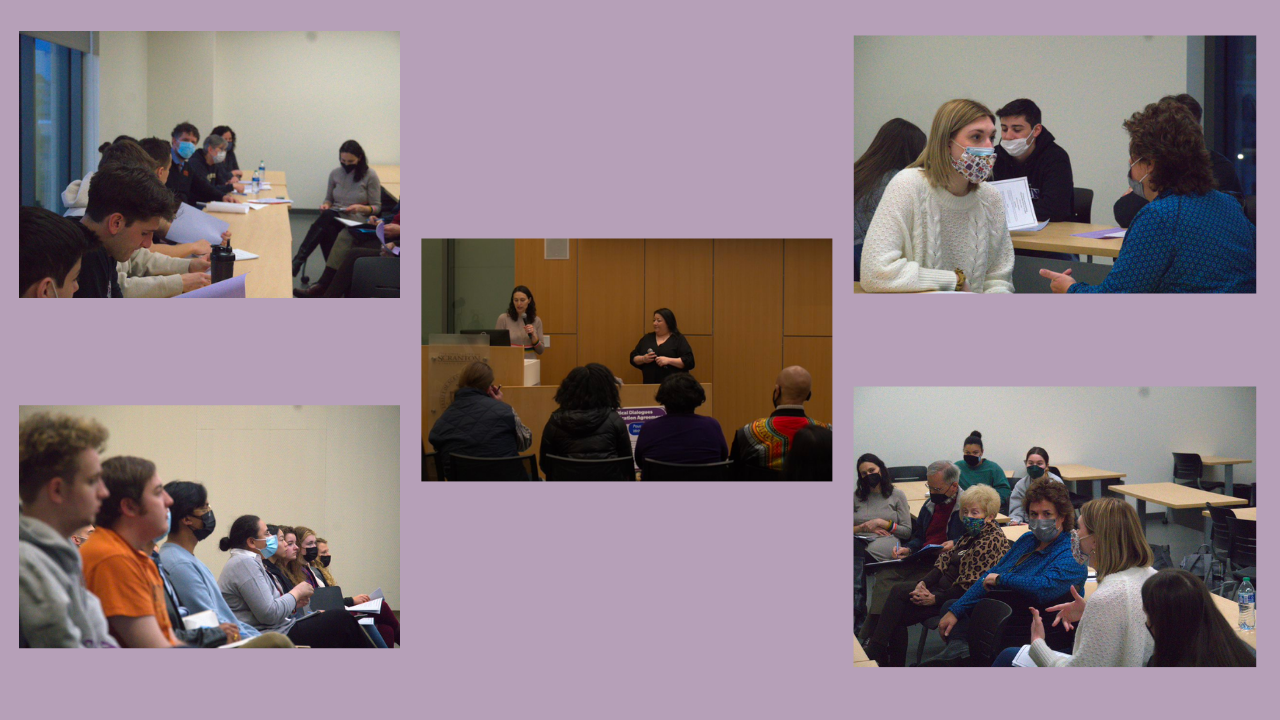Scranton Students, Residents Discuss Freedom

Scranton freshman Katie Egan, Long Island, recognizes there are many perspectives of the world and freedom.
“There’s a lot to be done to create a society where there’s freedom and people have the ability to exist,” Egan said.
The University of Scranton welcomed about 50 students and community members to a political dialogue on Tuesday, March 22, 2022. The event, "Freedom and the Founding: What Do They Mean For Us Today," tied into the National Endowment for the Humanities funded project, “Scranton’s Story, Our Nation’s Story.”
The two-year project highlights the people of Scranton, particularly those in underrepresented communities. It draws in methods of the university’s Dialogue Across Differences initiative that began in 2017 and is based on the idea that while each human identity is rich and complicated, common ideas of values and democracy can be uncovered through discussion.
Julie Schumacher Cohen, assistant vice president of community engagement and government affairs, said they are looking to explore the story of the founding of the country in the context of Scranton.
“We think we have a great story to tell here in Scranton,” Cohen said.
Event coordinators gave an overview of the concept of “Scranton’s Story, Our Nation’s Story,” inquiring about what we can do to make freedom more real for more people. They described the purpose of the discussion and applauded the participants for making the active choice to engage in dialogue with others who may not share the same views.
Each group was led by facilitators who began by reviewing a confidentiality agreement that allows people to speak freely on their values without the threat of repetition outside of the space.
Guiding the dialogue process, facilitators posed pre-written questions meant to allow participants to reflect on their own experiences with freedom. Questions, building upon one another to connect freedom to concepts such as the common good and the nation, were asked with time for the group to think about their ideas. Then participants shared their thoughts within 1-2 minute timeframes, as well as open discussion.
At the end, students and community members were asked to reflect on what they heard. The closing section called on participants to think about what they will take from the discussion, and how it will impact their actions moving forward.
Scranton sophomore Emma Warras, New Jersey, said how she will be expanding her education in the future.
“Already knew that coming into this, but I need to do that even more,” Warras said.
This article was written by Corinne Berger as part of a Media Writing course with photos by Bryson Eldridge.






